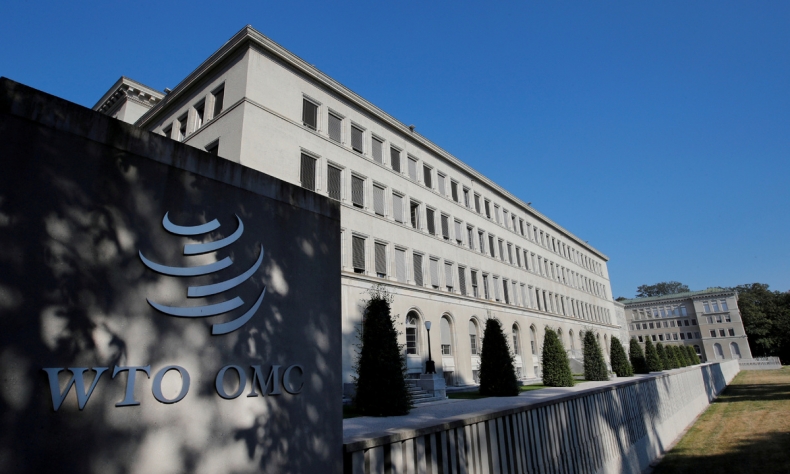Maintaining a Multilateral Trading Mechanism

To safeguard Multiparty Interim Appeal Arbitration Arrangement is to maintain the multilateral trading system.
China’s Ministry of Commerce announced that a 10-member panel of international arbitrators has been selected for the World Trade Organization. They were selected by the WTO multi-party interim appeal arbitration arrangement (MPIA), which include China and the EU, on July 31. The pool will enable MPIA to hear disputes during the suspension of the WTO Appellate Body. It will also help to ensure effective operation of the dispute settlement system and the rules-based multilateral trading system.
As none of the 10 arbitrators come from the United States, some U.S. politicians have cast doubts on the legitimacy of the pool. Their doubts are totally baseless, and hint at possible U.S. efforts to cause the suspension of the Appellate Body.
Established soon after WTO was founded, the Appellate Body resolves disputes among WTO members. A striking feature of the body is its independence, free of interference from power politics. All WTO members, big or small, have equal rights as plaintiffs and defendants within the system.
Having lost cases many times in the Appellate Body, the United States had a grievance against it. Since President Donald Trump took office, dismantling the Appellate Body became a clear goal of the Trump administration. Due to U.S. obstruction, since 2018, the body has been unable to appoint new judges when the old ones’ tenures ended. The seven-member Appellate Body has been unable to function since December 11, 2019, when the number of judges was reduced to one instead of the minimum three required.
While the suspension of the Appellate Body benefits the Trump administration and its anti-globalization agenda, it has created difficulties in settling international trade disputes for countries working to safeguard globalization.
In order to resolve the difficulties resulting from the suspension of the Appellate Body, China, the EU and more than a dozen other WTO members jointly issued a ministerial statement on March 27, announcing their decision to establish MPIA.
During the suspension of the Appellate Body, MPIA will hear the cases using the arbitration procedure set out in Article 25 of the Understanding on Rules and Procedures Governing the Settlement of Disputes (Annex 2 to the WTO Agreement).
The doubts expressed by some in the U.S. about MPIA’s legitimacy stem from a reluctance to see a new agency capable of settling disputes within WTO, and a desire to avoid being sued or engaged in arbitration through WTO. The doubts indicate a desire to use U.S. domestic laws to conduct arbitration and give rulings in favor of U.S. parties. This dangerous unilateral approach to power politics goes against the core tenets of WTO.
The establishment of MPIA and the pool of arbitrators reveals other members’ hopes of maintaining the stability and dependability of the trading system and saving it from damage by the suspension of the Appellate Body.
However, MPIA is only a compensatory solution, not an ultimate replacement for the Appellate Body. The best approach would be to begin the selection procedure for new members of the Appellate Body, so that it can function again. This, however, will involve the reform of WTO, which is expected to be neither smooth nor efficient.
To safeguard MPIA is to maintain the multilateral trading system. If the Appellate Body remains dysfunctional for a long time, an increasing number of WTO members are expected to join MPIA.
There are precedents in WTO history of the breakdown of negotiations, leading to new initiatives that are joined by more and more members. MPIA will be no exception.
 Facebook
Facebook
 Twitter
Twitter
 Linkedin
Linkedin
 Google +
Google +










